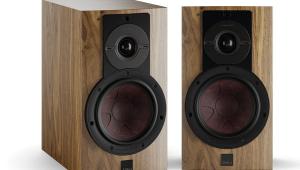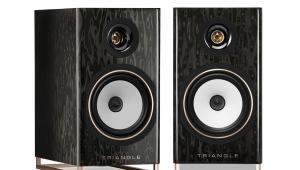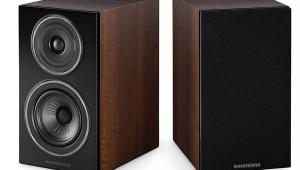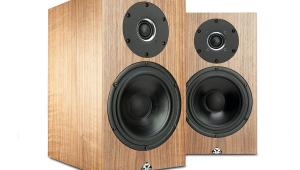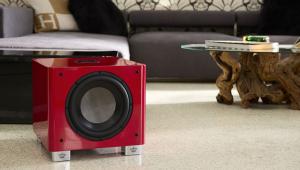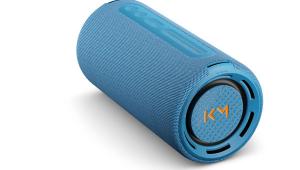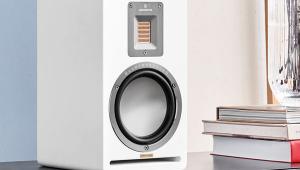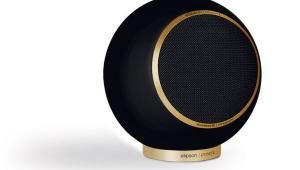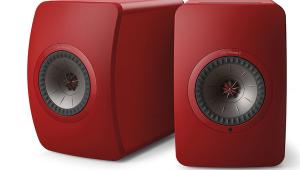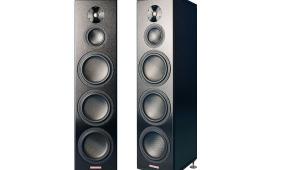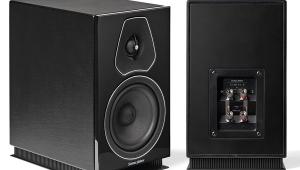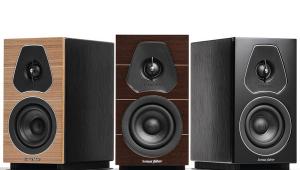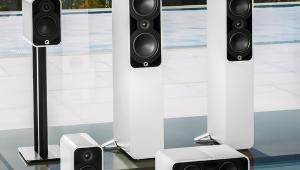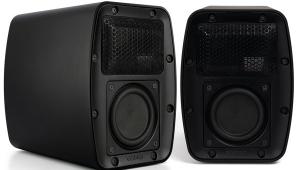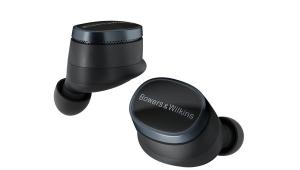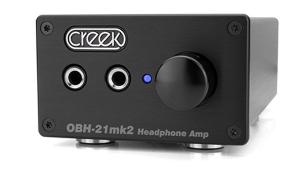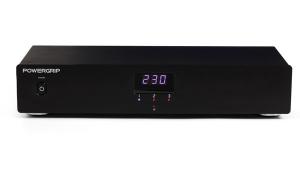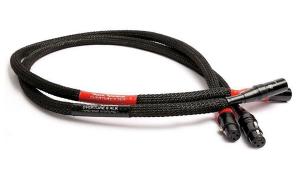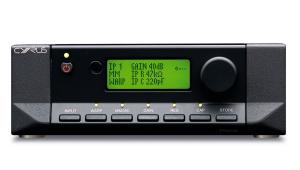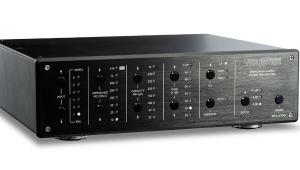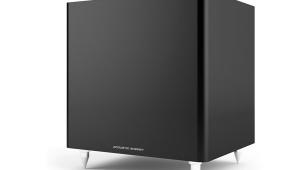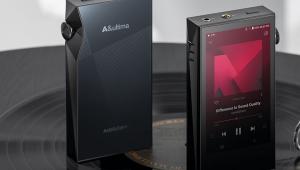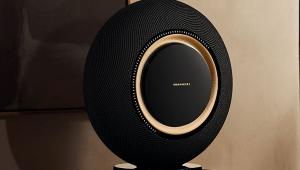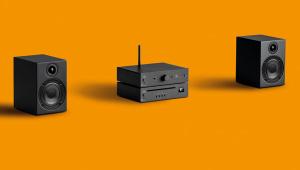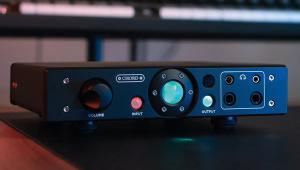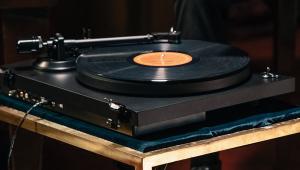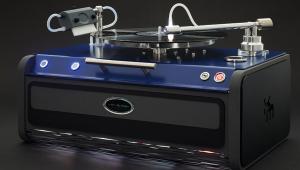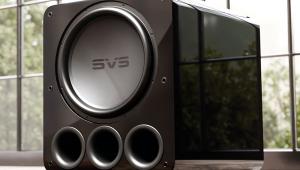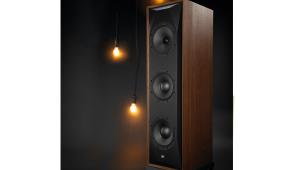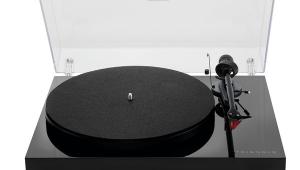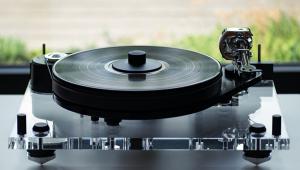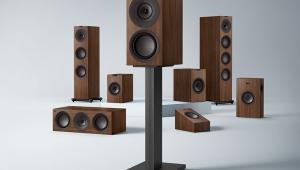Q Acoustics 3030i
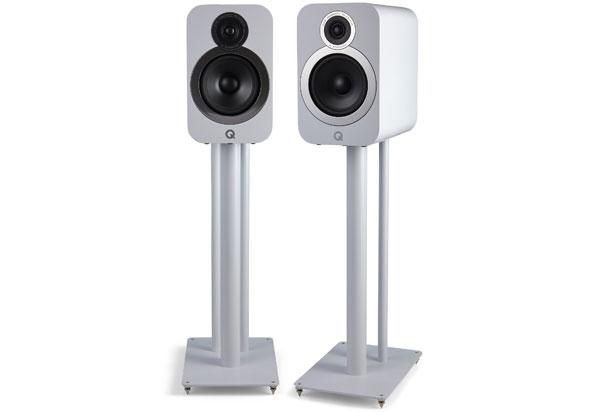
 Just as Q Acoustics’ 3020i standmount speaker (HFC 441) is a larger version of the 3010i, so the 3030i is an XL, possibly XXL, incarnation of the 3020i. You’d think the upshot would be easy to predict – a brand-familiar smooth, cohesive, easy-going character writ a little larger with more bass, blood and body. In theory, for anyone used to the sound of the 3020i, we could wrap the review right here. Thankfully, the ‘up-scaled’ 3030i has been bestowed sonic benefits that far exceed the anticipated extra heft. It’s a big deal
in more ways than one.
Just as Q Acoustics’ 3020i standmount speaker (HFC 441) is a larger version of the 3010i, so the 3030i is an XL, possibly XXL, incarnation of the 3020i. You’d think the upshot would be easy to predict – a brand-familiar smooth, cohesive, easy-going character writ a little larger with more bass, blood and body. In theory, for anyone used to the sound of the 3020i, we could wrap the review right here. Thankfully, the ‘up-scaled’ 3030i has been bestowed sonic benefits that far exceed the anticipated extra heft. It’s a big deal
in more ways than one.
But big is a good place to start. In completing the 3000i series lineup of standmounts, the 3030i stretches the soft-cornered form factor established a couple of years ago by the dinky 3010i beyond that of the mid-sized 3020i and into a thing of substance unlikely to melt into background decor and conceivably close to the limit of what most people would consider acceptable for a speaker to place on a sturdy stand or even the most capacious of bookshelves.
It’s because the rear-ported enclosure is closer in size to the top portion of the 3050i floorstander’s (HFC 447), sharing its 200mm width and exceeding its depth by a whopping 19mm. And while the 3050i’s depth measurement is already pretty generous for a strapping tower, plus 19mm becomes a very distinctive feature of a squat standmount, making it slightly deeper than it is tall. The Q 3000FSi stands aren’t just a good idea, but probably necessary for the sake of aesthetic harmony.
Let’s rewind a little. Q Acoustics’ popular and acclaimed 3000 series lineup acquired its evolutionary ‘i’ in 2018. Trickled down from the £4k Concept 500 flagship (HFC 426) was something called P2P or computer-aided ‘Point to Point’ bracing, which according to QA: “provided internal support in areas of the cabinet that needed stiffening, including an extra precision-cut damping panel”. Result? “More focused, accurate and low distortion fidelity”. The deeper enclosures liberated an extra 25 percent of internal volume and, for the 3030i, this swells to an impressive 12.5 litres – not an incremental push, but about twice that of the 3020i.
To go with the size upgrade, the 3030i gets an optimised version of the 3050i’s 165mm mid/bass driver (up from the 3020i’s 125mm) and a tweaked crossover that hands duties over to the 22mm dome tweeter at 2.4kHz. The main driver uses a cone precision formed from impregnated and coated paper and mated with a newly developed, low-hysteresis, rubber surround. QA says the coated paper cone provides the optimum balance between stiffness and self-damping, which means it can accelerate without flexing and stop very accurately without unwanted resonances. The microfibre soft dome tweeter is decoupled from the baffle via a suspension system to isolate it from vibrations made by the large driver below and has a wide surround for broader dispersion. Claimed frequency range is a floorstander-rivalling 46Hz to a bat-worrying 30kHz – good going for such a reasonably priced standmount.
As we’ve come to expect with the 3000i family, the choice and execution of finish is excellent. There are four options: Graphite Grey, Carbon Black, English Walnut or, as here, Arctic White, which isn’t quite as white as Rylan Clark-Neal’s teeth. The magnetic grilles, rear baffle-hugging binding posts and natty chrome driver trims look smart and up-market, too.
Sound quality
A former Group Test winner, QA’s 3020i is a permanent presence in my storeroom that usually gets an outing whenever I need a reliable circa-£200 standmount reference. As I concluded at the time: “Its smooth, extended treble has fine inner detail and integrates seamlessly with a midband that is poised, open and articulate which, in turn, melds with the weighty, tuneful bass”. So, is the 3030i simply more of the same with a bigger, louder, bassier presentation to justify the beefier physique and £129 price premium?
It’s what I might have expected, the 3030i is most definitely the kind of speaker that will keep you listening long into the night. The way it does so, however, is through a combination of qualities that, given suitably talented electronics, captures the higher-end stylings of QA’s £3,000 Concept 300 flagship standmount and, in a direct comparison, makes the 3020i, terrific as it is, sound closed in and polite.
To warm up it’s an hour or so of Apple AirPlay and Spotify with an iPad Mini streaming jazz fusion guitar virtuoso Al Di Meola’s Across The Universe to Monitor Audio’s A100 Airstream amp/DAC. Straight away the 3030i sounds smooth, airy and unconstrained and particularly adept at showcasing the A100’s ability to portray soundstage depth and image solidity, despite the modest resolution of the stream and the slightly blunted attack of Meola’s Ovation steel string guitar. At the same time, the speakers treat the little amp’s fulsome but not always so tightly controlled bass with a sympathetic sense of proportion and care. A modest setup, then, but already the sound is beautifully balanced and gifted a scale, transparency and subtlety that belies the modest source and amp.
Substituting Hegel’s terrific H120 network amp and DAC (HFC 460)playing the same album via Tidal MQA, again exploits the 3030i’s natural balance, sweet tonality and overarching composure but introduces a step-change in clarity, insight, dynamic expression and control that’s hugely satisfying. Suddenly, the sharp speed and transient precision of Meola’s playing is more mesmerising than merely impressive while the warm, quivering textures of the Melotron and rich timbre of the bass on Strawberry Fields Forever are portrayed with nuance and finesse. The 3030i isn’t just wide open to the change of gear, but appears to accept the challenge with a kind of ‘bring it on, I can take it’ bravura, urging you to deploy ever more capable components just to see how long it can stay on the pace.
And this is where it shows its true class. With Chord Electronics’ Hugo TT2 (HFC 468) standing in for the Hegel’s on-board DAC, low-level detail, textures and spatial cues previously only hinted are revealed in an altogether more intricate and incisive way yet rendered by the speaker with splendid musicality and coherence. Without being in any way dry or obviously analytical the 3030i has a generous and unfettered sound that seems to keep everything in proportion, beautifully organised and essentially believable. Bound by physics, dynamic reach and bass extension have their limits but there’s no more reason to be hesitant with the Hegel’s volume control playing Motörhead than Mahler. Easy to drive and 88dB sensitive, impeccable fidelity and party levels in my larger room are a breeze and a blast./p>
Sound quality
As outstanding as the smaller standmounts in Q Acoustics’ 3000i range undoubtedly are, the 3030i possesses a substantially broader performance envelope that makes it just as at home in a starter system as one with serious audiophile aspirations. More bass, scale and volume, yes, but more finesse and insight, too. Even at twice the price, it would still be a no-brainer. DV
DETAILS
Product: Q Acoustics 3030i
Type: Two-way standmount loudspeaker
FEATURES
● 1x 22mm soft dome tweeter
● 1x 165mm mid/bass driver
● Quoted sensitivity: 88dB/1W/1m
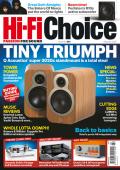 |
Inside this month's issue:
Q Acoustics 3020c standmount loudspeakers, Perlisten R10s active subwoofer, Quad 33 and 303 pre/power amps, Acoustic Solid Vintage Full Exclusive turntable, newcomer Fell Audio Fell Amp and Fell Disc and lots, lots more...
|
